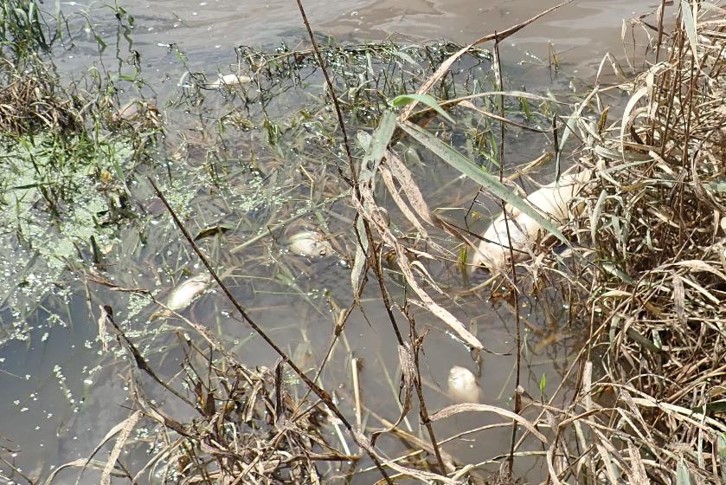
By Daryl Bauer, Nebraska Game & Parks Commission
I hesitate to blog about some topics. No, not trying to hide anything, but do not want to make a bigger issue than necessary about some things. . . .
Having said that, yes, we have been getting a few reports of fish die-offs in the past couple of weeks. Most of those have been from relatively small waters, mostly in eastern Nebraska. Fact is we usually do get a few fish kill reports every year about this time. Here is what is going on:
First of all, when dead fish are observed somewhere, almost everyone assumes that some kind of pesticide or poison was sprayed near or into the water. That is seldom the case. By far, when a reason can be determined, most fish die-offs are due to natural causes.
It is mid- to late- summer. Nebraska waters are fertile, all of them. Many of our waters will have peak algae blooms this time of year. Algae are plants, very small, most of them microscopic, plants. As with all plants, they photosynthesize when the sun is shining. Photosynthesis produces oxygen. However, when the sun is not shining, plants, including algae, respire and consume oxygen. The result is oxygen levels cycle on a daily basis in many waters, especially relatively small waters with algal blooms.
From time to time, we get some cloudy weather during mid- to late-summer. When that happens, and it has with some frequency in recent days, algae and other plants do not produce oxygen like they would when the sun is shining. With those conditions, and especially overnight when oxygen levels decline even further, fish die-offs can occur simply because oxygen levels get too low.
That is the reason there are some fish die-offs every year around this time.
Those summerkills seldom eliminate all fish in a waterbody. However, the extent of summer die-offs can vary greatly. Unfortunately, in the worse cases, fisheries can be significantly depleted. On the other hand, in most cases, mortality rates are relatively minor and impacts will be minimal. Also unfortunately, certain species of fish are less tolerant of low oxygen, and large fish are less tolerant than small fish.
If you see a number of dead fish in any waterbody, it never hurts to report it. There is a section in the annual Fishing Guide that includes contact information for fish kill reports. Field biologists will investigate most die-offs as they have time. Those investigations will document numbers, species and sizes of dead fish, and water quality parameters, including dissolved oxygen, at the time. Surprisingly, by the time oxygen levels can be observed, they usually have recovered and may in fact be excessively high.
Bottom line of course will be the impact to fishing. Usually that will take some time to see what survived. Fishing may suffer, but on the other hand many times it bounces right back. We just have to wait and see. Hope for the best!
P.S. Had this blog post all ready, let me add this recent news release: Fish kills occurring in Nebraska.
